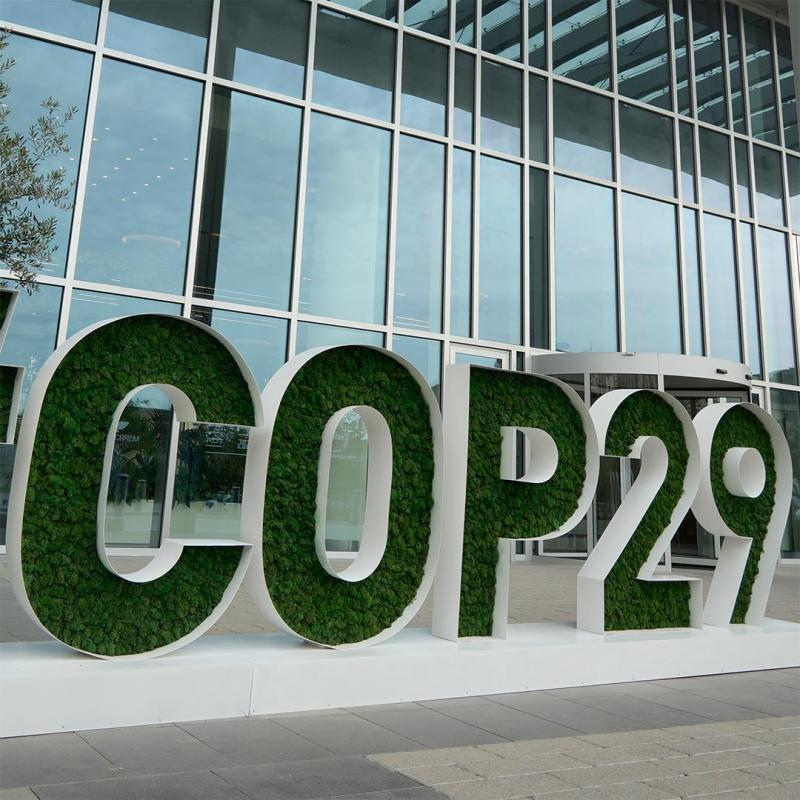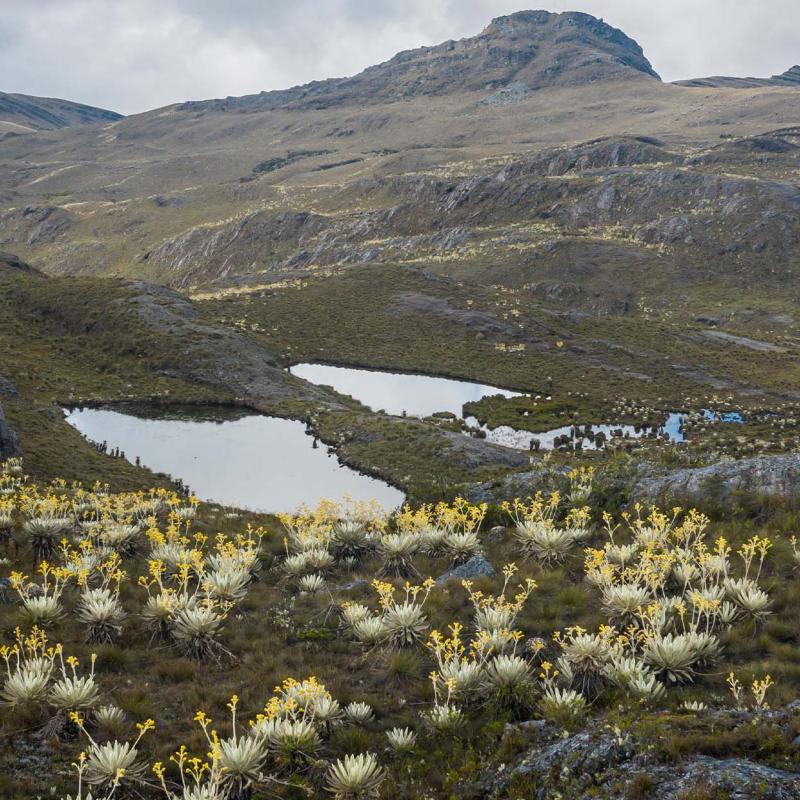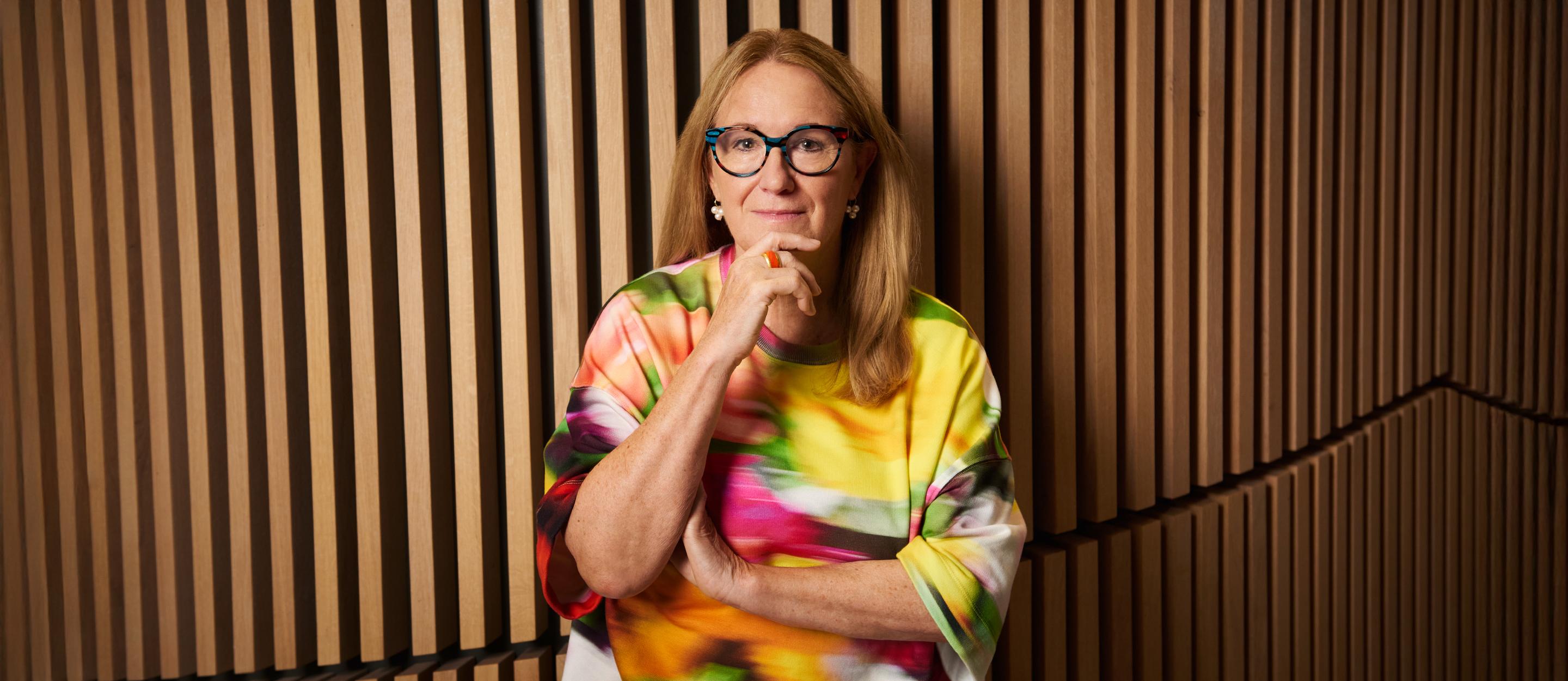 GIZ
GIZ
‘Climate change and the loss of our natural environment are jeopardising our prosperity’
GIZ Managing Director Ingrid-Gabriela Hoven on this autumn’s political pushes for sustainability
Ms Hoven, this autumn is seeing a host of international conferences dedicated to sustainability. In the face of economic stagnation, migration and geopolitical crises, is anyone actually still interested?
I’ve just returned from the UN Biodiversity Conference (COP16) in Cali. My very strong impression was that there is a lot of interest in biodiversity. It was not only civil society – the private sector was also pushing for a paradigm change. Media interest was huge and they were stressing the urgent need to act. It is not the eleventh hour – it’s five past midnight! Lots of people want to make the future environmentally friendly, but obviously they are also concerned about the economy, migration and crises. These are not things that we should play off against each other. We should consider them together. Our prosperity is seriously threatened by climate change and biodiversity loss. Conversely, the more rigorously we push forward with the transition to greenhouse-gas-neutral, green economies, the greater the boost to our prosperity. New technologies, business models, products, markets – and our health – are all set to benefit. McKinsey has calculated that significant impetus can be expected for growth, but we are transforming too slowly. The UN has forecast that we will reach the critical threshold of a 1.5° Celsius rise in the global temperature within the next four years. And the World Economic Forum has said that half the world’s total GDP is at risk as a result of the unprecedented loss of our natural environment. Against this backdrop, I think downgrading sustainability to a secondary problem is misguided.
‘More than 15 agreements were signed at the Hamburg Sustainability Conference – that’s the way to build strong alliances.’
The autumn kicked off with the Summit of the Future in New York, followed by the Hamburg Sustainability Conference. What is your takeaway from these events?
These meetings have highlighted what is at stake, and have also demonstrated that the will to drive the sustainability agenda forward is still very much there. In New York, a Global Digital Compact was adopted. Its objective is to provide guidelines for an increasingly digital world and propose a regulatory response to the technological developments. Today we know that digitalisation can stimulate and accelerate the environmental transformation process. That is why we speak today of the ‘twin transition’. And that is why the adoption of this Compact has much more than symbolic value.
What is the significance of the Hamburg Sustainability Conference? Some people have criticised it as being irrelevant.
That is not an opinion I share. The conference was a very good start. The idea is that it will become for sustainability what Munich is for security – a meeting where all major actors, including representatives of the private sector, come together once a year to engage in discussions and to hammer out sustainability solutions. I found it very useful and valuable. More than 15 agreements were signed – between governments, financing bodies, multilateral development banks, civil society, the private sector and international organisations. That’s the way to build strong alliances. And we really need this sort of strong partnership. Some of the outcomes of the Hamburg Conference include initiatives for sustainable hydrogen supply chains in global shipping, fair natural resource partnerships for battery production, and a more equitable international financial architecture. A Hamburg Charter for Inclusive and Just Mobility was also adopted.
The UN Biodiversity Conference in Cali was the first of the three COPs to be held back to back this autumn. What are your conclusions so far?
I think it is particularly important to appreciate that biodiversity, climate and desertification are closely linked and to address them together. They are components of a single nexus, and reinforce each other in both a positive and a negative way. Biodiversity loss accelerates climate change. When forests and bogs are lost, CO2 is released. If they remain intact, they act as natural carbon sinks, storing vast volumes of carbon dioxide. Stopping desertification also helps the climate, because farmland and forests store significantly more carbon dioxide than deserts. Conversely, climate change can further accelerate desertification and species loss, as we can see with coral reefs. That means that we can only effectively address these challenges if we see them as parts of a whole, and if we put people at the heart of our approaches.
Yet we have three separate conventions and negotiation processes …
That is true, but we can see the processes gradually converging. Biodiversity was a very important issue at last year’s UN Climate Change Conference (COP28), for instance. That has not always been the case. Lots of people today are already talking about a double or even triple crisis, where land and soil also have to be taken into account. More and more speakers at the COPs are making cross references to the other areas.
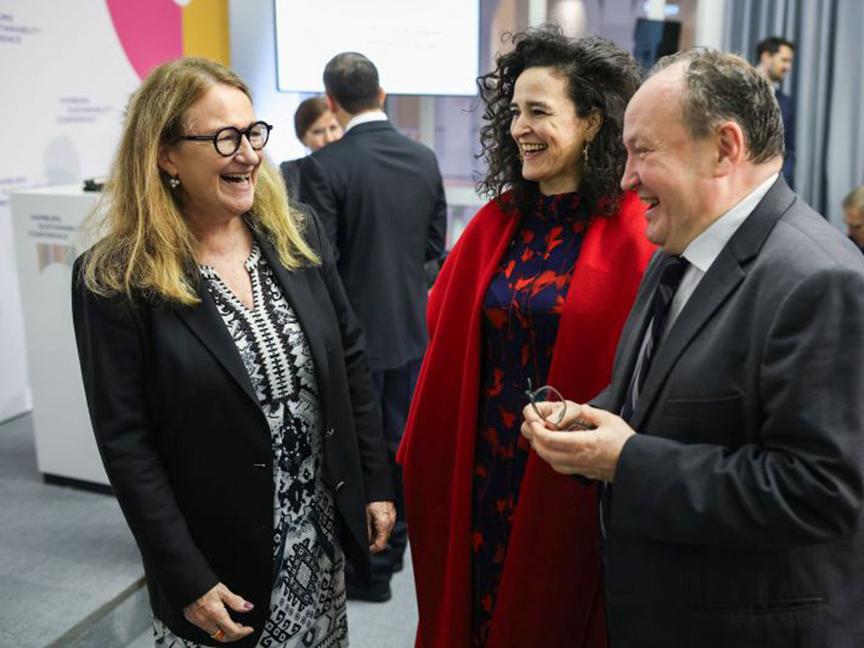 GIZ
GIZ
Deep in discussion during the Hamburg Sustainability Conference: Ingrid-Gabriela Hoven with Mafalda Duarte, Executive Director of the Green Climate Fund, and Ambroise Fayolle, Vice-President of the European Investment Bank (EIB)
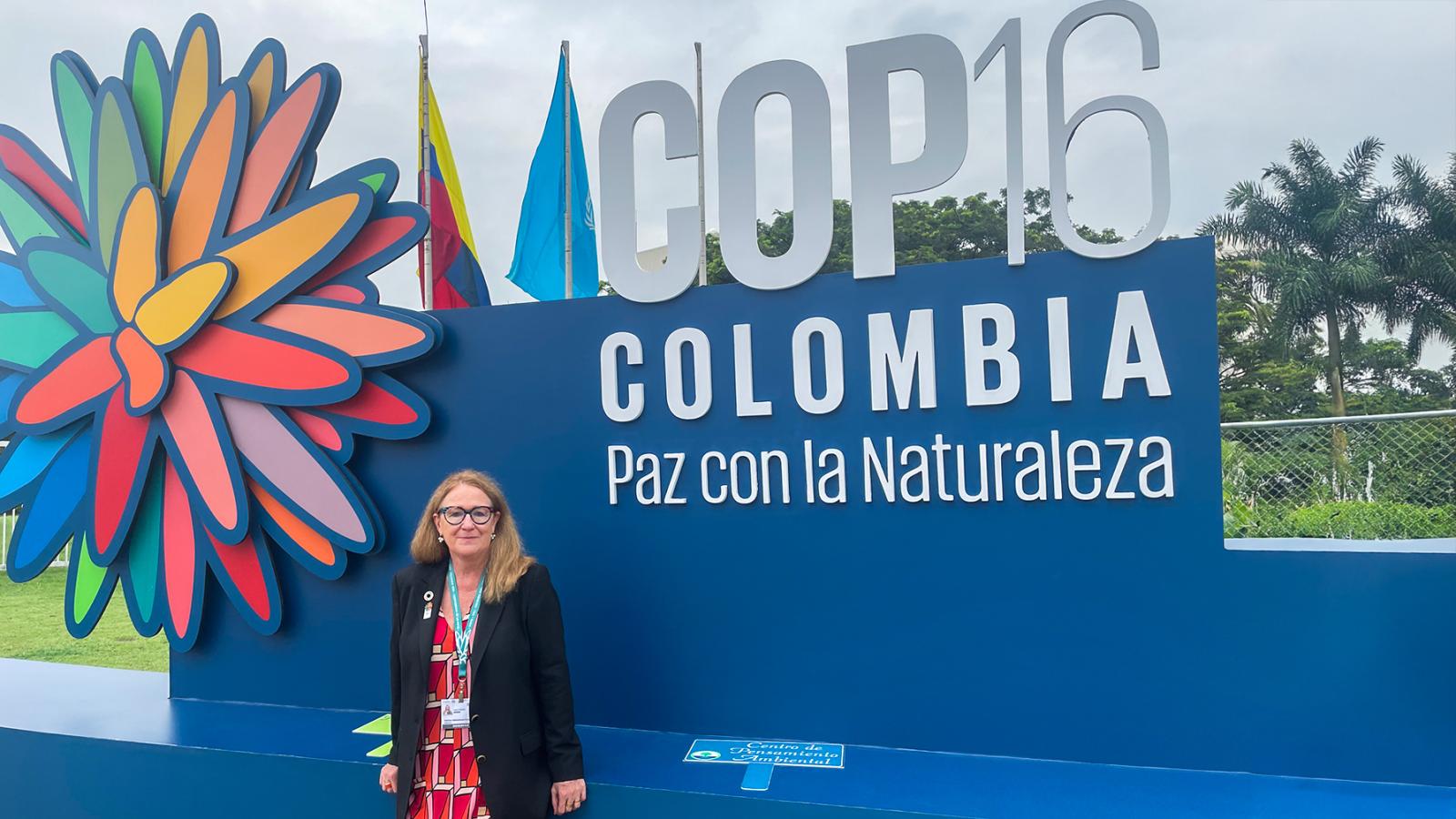 GIZ
GIZ
What would you hope to see emerge from this year’s UN Climate Change Conference?
You can never tell in advance. Last year in Dubai, expectations were not high – but at the end of the day the meeting was more successful than expected. For the first time, the beginning of the end of the fossil fuel era was officially signalled. The ‘Loss and Damage Fund’ became operational thanks to pledges of finance from a number of countries, including Germany. That was more than many people, including myself, had expected. This year, the host is another oil-exporting nation, so I expect less than from next year’s conference, which will be held on the edge of the Amazon Basin in Brazil. But I may be pleasantly surprised. And, along with the rest of the representatives from Germany, I’ll do my best to make progress.
‘Over 130 countries have now decided to achieve net zero by the middle of this century.’
At the start of our interview you mentioned various threats posed by higher temperatures on Earth. Are we not making any progress?
Oh yes, we are making progress. Take the global energy transition. Twenty years ago nobody would have believed this meteoric development to be possible. When the first Renewables Conference was held in Bonn in 2004, the issue was still felt to be of secondary importance. Renewables are now booming almost everywhere in the world. Every year sees a new record broken. The latest studies even indicate that the Global South is developing renewable energy particularly swiftly and that about one fifth of these countries have already outpaced the North. With good reason! Renewable energies are greener, but also cheaper, and make states and societies more independent. Russia’s war of aggression against Ukraine, and all the consequences also for energy supplies, was a real eye-opener for many politicians. Over 130 countries have now decided to achieve net zero by the middle of this century. I see very obvious progress here. We must, however, drive the transformation faster and significantly ratchet up our ambition. And we need to make sure we get people on board. The latest Emissions Gap Report, which is published annually by the United Nations Environment Programme, forecasts a 3-degree rise in global temperatures unless we dramatically increase our level of ambition and action. That kind of rise is not something anyone can wish for: not for themselves and not for their children and grandchildren. So what we need is a climate-friendly and environmentally sound economy – but also a just economy. And we need it as fast as possible.
What is GIZ doing to drive this transformation?
I would like to give you some figures, just to show you how seriously we take the goal of a sustainable and socially just transformation. About one third of GIZ’s portfolio focuses on the climate sector. Germany is one of the world’s largest donors. We support countries in their efforts to build a climate-neutral economy, implement adaptation measures, and protect the weakest in society from the impacts of higher temperatures. Alongside classic energy projects, we are helping train energy experts and skilled workers in ‘green skills’. A holistic transformation can only be successful if there are enough skilled workers in the green sectors. The bottom line: our commitment in this area benefits climate action, fosters German exporting industry and helps achieve international stability. If we can manage to make this transition to a fairer, more sustainable world, then that will be an important contribution to achieving peace and security. GIZ works to shape a future worth living around the world – that is our mission and our motivation.
